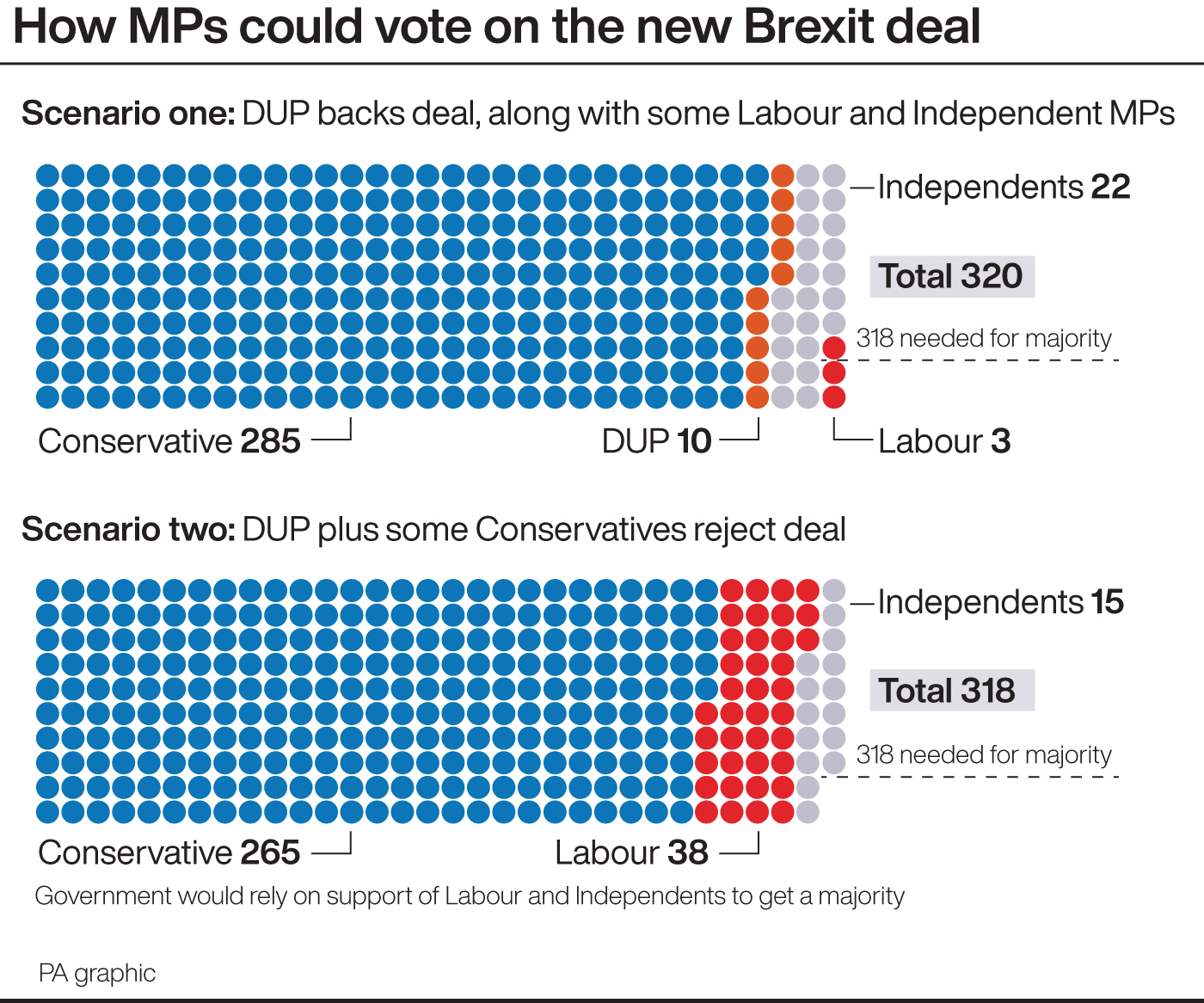
The Government faces a challenge to get its Brexit deal through the House of Commons, even with the DUP on side.
A total of 635 votes will be in play when the deal is debated by MPs.
This means the Government will need at least 318 votes to be certain of a majority (635 divided by two, plus one).
If every Conservative MP who is able to vote also backs the deal, this gives the Government 285 votes.
Add in the DUP’s 10 MPs and the total goes up to 295.
But this is still 23 votes short of a majority.

Where could the extra votes come from?
One is likely to be Charlie Elphicke, the former Tory MP who is currently sitting as an Independent after having the Conservative whip removed.
There could also be a tiny number of Labour MPs who decide to back the deal – for example, Kate Hoey and Kevin Barron, both of whom have said they are standing down at the next general election.
Then there is the group of former Tory MPs who sit on the Government benches as Independents.
There are 21 of them in total – 20 who lost the Tory whip when voting for the Benn Act (to rule out no-deal), plus Amber Rudd, who left the party in protest at Boris Johnson’s Brexit policy.
If they all swung behind the Government, plus Mr Elphicke and a handful of Labour MPs, this could be just enough to see Mr Johnson over the line.
But were the DUP to vote against the deal, the task of reaching the magic number of 318 would become much harder.
Opposition from the DUP might encourage some Tory MPs who voted against Theresa May’s deal to do the same again.
The Prime Minister would then need the support of a sizeable minority of Labour MPs, along with a group of Independents, to help him get a majority.
Note: The 635 votes in play are the 650 MPs in the House of Commons minus seven Sinn Fein MPs (who do not take their seats), the Speaker and three deputy speakers (who do not vote), and the four vote tellers – two for, two against – whose votes are not included in the overall result.


Comments: Our rules
We want our comments to be a lively and valuable part of our community - a place where readers can debate and engage with the most important local issues. The ability to comment on our stories is a privilege, not a right, however, and that privilege may be withdrawn if it is abused or misused.
Please report any comments that break our rules.
Read the rules hereLast Updated:
Report this comment Cancel